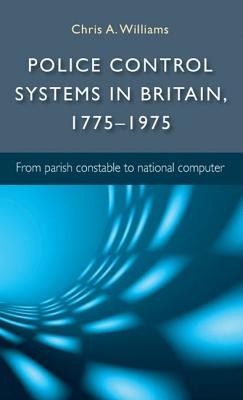
- We will send in 10–14 business days.
- Author: Chris Williams
- Publisher: Manchester University Press
- ISBN-10: 0719084296
- ISBN-13: 9780719084294
- Format: 14.5 x 21.8 x 2.3 cm, kieti viršeliai
- Language: English
- SAVE -10% with code: EXTRA
Reviews
Description
During the last two centuries, the job of policing in Britain has been transformed several times. This book analyses the ways that police institutions have controlled the individual constable on the 'front line'. The eighteenth-century constable was an independent artisan: his successor in the Metropolitan Police and other 'new' forces was ferociously disciplined and closely monitored. Police have been controlled by a variety of different practices, ranging from direct day-to-day input from 'the community', through bureaucratic systems built around exacting codes of rules, to the real-time control of officers via radio, and latterly the use of centralised computer systems to deliver key information.
Police forces became pioneers in the adoption of many technologies - including telegraphs, telephones, office equipment, radio and computers - and this book explains why and how this happened, considering the role of national security in the adoption of many of these innovations. It will be of use to a range of disciplines, including history, criminology, and science and technology studies.
EXTRA 10 % discount with code: EXTRA
The promotion ends in 22d.21:53:30
The discount code is valid when purchasing from 10 €. Discounts do not stack.
- Author: Chris Williams
- Publisher: Manchester University Press
- ISBN-10: 0719084296
- ISBN-13: 9780719084294
- Format: 14.5 x 21.8 x 2.3 cm, kieti viršeliai
- Language: English English
During the last two centuries, the job of policing in Britain has been transformed several times. This book analyses the ways that police institutions have controlled the individual constable on the 'front line'. The eighteenth-century constable was an independent artisan: his successor in the Metropolitan Police and other 'new' forces was ferociously disciplined and closely monitored. Police have been controlled by a variety of different practices, ranging from direct day-to-day input from 'the community', through bureaucratic systems built around exacting codes of rules, to the real-time control of officers via radio, and latterly the use of centralised computer systems to deliver key information.
Police forces became pioneers in the adoption of many technologies - including telegraphs, telephones, office equipment, radio and computers - and this book explains why and how this happened, considering the role of national security in the adoption of many of these innovations. It will be of use to a range of disciplines, including history, criminology, and science and technology studies.


Reviews